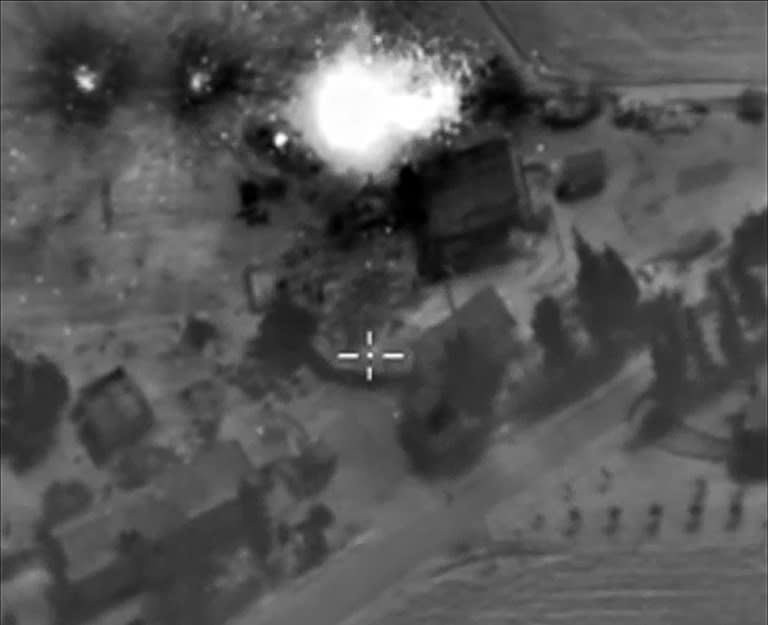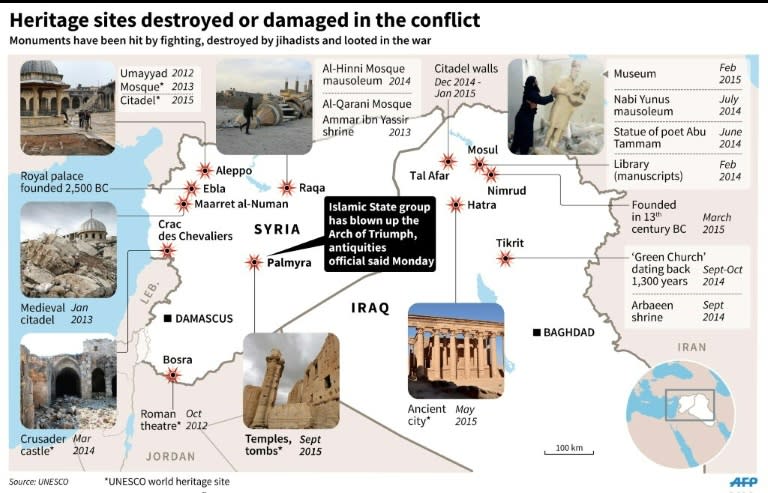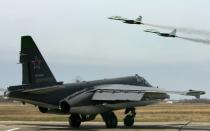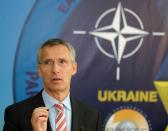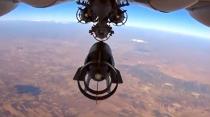NATO says Russia's Turkey air violations no accident
NATO's chief accused Russia on Tuesday of deliberately violating Turkey's airspace during bombing raids on Syria, as President Recep Tayyip Erdogan warned Moscow it risked losing an ally. Turkey said its jets were harassed and put on radar lock by an unidentified MIG-29 on Monday -- the latest in a series of confrontations near the border with its war-torn neighbour. The NATO member accuses Russia of violating its airspace at least twice over the weekend, and has warned it will activate its rules of military engagement if such intrusions are repeated. In his toughest remarks yet against Russia in the crisis, Erdogan accused Moscow and its ally Iran of working to maintain the "state terror" of Syrian President Bashar al-Assad. "It is of course not possible to remain patient about this," said Erdogan, referring to the incursions into Turkish air space. "If Russia loses a friend like Turkey with whom it has a lot of cooperation it is going to lose a lot of things. It needs to know this," he added. NATO has criticised the violations as "irresponsible" and urged Moscow to end raids against civilians and Syria's opposition forces. On Tuesday, it stepped up the rhetoric, insisting the violations were intentional. "For us, this does not look like an accident, it is a serious violation," NATO chief Jens Stoltenberg said at a press conference in Brussels. He said such incursions were "unacceptable" and "may create a dangerous situation. It is important to make sure this does not happen again." - Russia blames weather - Turkey said it had summoned the Russian ambassador to Ankara for the second time in as many days to protest a violation of its airspace on Sunday. Ankara said that on Saturday its fighter jets intercepted a Russian warplane and forced it to turn back. Then on Sunday, two Turkish F-16 jets were "harassed" by a MIG-29 plane, according to the army. Russia has acknowledged the Saturday incident, which it blamed on "unfavourable weather conditions". "There is no need to look for some conspiracy theories," the defence ministry said of the incident, which it added lasted "several seconds". Russian warplanes have been carrying out raids in Syria since Wednesday, targeting what they call "terrorist" groups, though rebels and their backers accuse Moscow of hitting a range of opposition fighters, not just jihadists. Syrian state television said Tuesday that Russian warplanes had struck IS targets in and around the ancient city of Palmyra for the first time. A military source cited by Syrian state television said Russian forces struck the city of Palmyra and its outskirts, "destroying 20 armoured vehicles, three ammunition warehouses, and three rocket launchers." The Syrian Observatory for Human Rights, a Britain-based monitor, said the Palmyra strikes killed at least 15 IS fighters and injured dozens more. Late Monday, Russia's defence ministry said its jets had struck 10 IS targets in Damascus, Aleppo, Homs and Idlib provinces throughout the day. A Syrian military source told AFP that the Russian operations "are still in the first stage, but will expand as part of an operation lasting several months". The source said it was too early to talk about new ground operations, "because now is the time for air operations carried out by the Russians". - Overlapping campaigns - The Russian operations come more than a year after a US-led coalition began bombing IS in Syria, without coordinating with Damascus. The United Nations warned Monday that having so many powers operating in Syria "creates a situation that is fraught with danger and very delicate". And in a sign of the complex interests involved, Israel's military confirmed it would be holding talks with a visiting Russian delegation on a mechanism to avoid accidental clashes in Syria. IS has taken advantage of the chaos that has engulfed Syria since an uprising began in March 2011 with protests against Assad's regime. It holds large swathes of territory in Syria and neighbouring Iraq, where it commits atrocities including beheadings, rape and mass killings. The group has also destroyed archaeological and cultural heritage that it considers idolatrous in acts calculated to garner headlines and propaganda value, experts say. On Sunday, the jihadists blew up the Arch of Triumph in Palmyra, prompting new outrage at the destruction of the UNESCO World Heritage site. "This is a systematic destruction of the city. They want to raze it completely," Syria's antiquities chief Maamun Abdulkarim told AFP.




